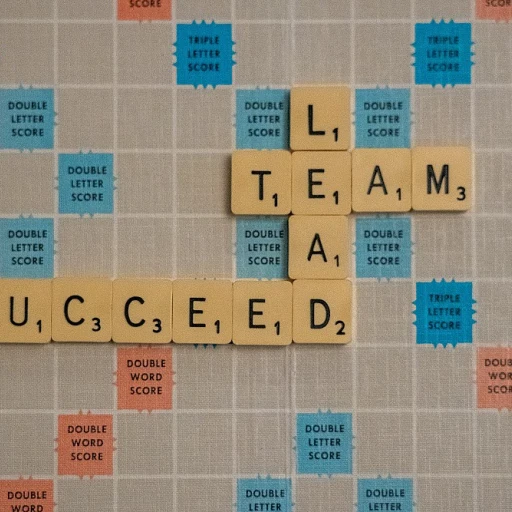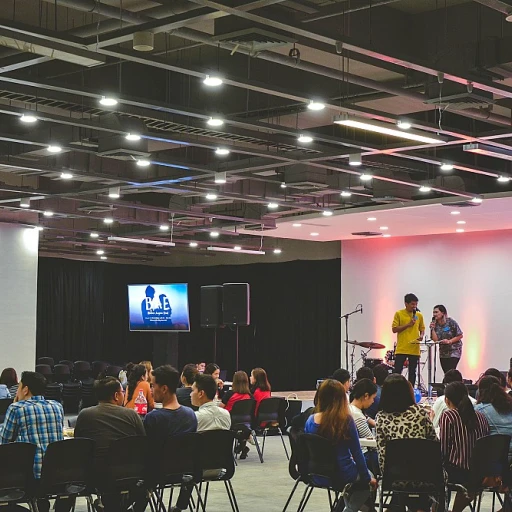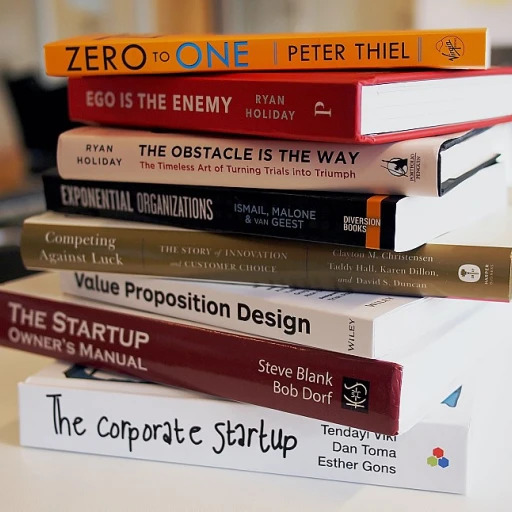
Understanding the role of AI in modern HR interviews
AI’s Growing Impact on the Interview Process
Artificial intelligence is rapidly changing the way companies approach the job interview process. Today, AI tools are helping HR teams streamline the search for the best candidates, making it easier to identify the right fit for a role. These technologies can analyze large volumes of candidate data, from resumes to video interviews, and help hiring managers focus on the most promising applicants. By automating repetitive tasks, AI frees up time for HR professionals to concentrate on more strategic aspects of hiring, such as evaluating communication skills and company culture fit.
How AI Enhances Interview Questions and Answers
AI-driven platforms can generate skill-based and situational interview questions tailored to the specific requirements of a job. This ensures that each candidate is assessed fairly and consistently. For example, AI can suggest questions that help uncover a candidate’s problem solving and critical thinking abilities, or ask them to describe a time they worked with team members to overcome a challenge. These targeted questions help interviewers dig deeper into a candidate’s soft skills, such as adaptability and collaboration, which are often just as important as technical expertise.
- AI can analyze candidate answers for patterns that indicate strong communication skills or a good fit with company culture.
- Automated scoring systems help reduce human bias and ensure a more objective evaluation of each candidate’s responses.
- AI tools can also flag common interview mistakes or highlight exceptional answers, helping interviewers make more informed decisions.
Preparing for the Future of AI in HR
As AI continues to evolve, its role in the interview process will only grow. Companies that embrace these technologies will be better equipped to find and nurture top talent, especially for roles that require a unique blend of technical and soft skills. For those interested in learning more about how AI is transforming talent acquisition, this guide to finding and nurturing UX talent with AI in HR offers valuable insights.
Crafting effective questions to ask a potential employee
Building Strong Interview Questions for Better Hiring Decisions
Crafting effective questions is at the heart of a successful job interview. The right interview questions help you understand if a candidate is the best fit for your company, team, and the specific role. With the rise of AI in HR, the interview process is evolving, but the fundamentals of asking clear, targeted questions remain essential. A well-structured interview combines skill based and situational interview questions. This approach helps assess both technical abilities and soft skills, such as communication skills, problem solving, and critical thinking. Here are some tips and examples to help you develop questions that will help identify top candidates:- Start with the role in mind: Define the key skills and qualities needed for the job. Tailor your questions to uncover these attributes.
- Use open-ended questions: These encourage candidates to share detailed answers and demonstrate their thought process. For example, "Can you describe a time when you had to resolve a conflict within your team?"
- Incorporate situational interview questions: Ask candidates how they would handle specific scenarios relevant to your company culture and work environment. This helps reveal their problem solving and critical thinking skills.
- Assess soft skills: Questions like "How do you handle feedback from team members?" or "Describe a time you had to adapt quickly to change at work" can provide insight into a candidate's emotional intelligence and adaptability.
- Evaluate fit with the team: Ask about preferred work styles and how candidates collaborate with others. For example, "What role do you usually take on in a group project?"
- Include common interview questions: These help benchmark candidates against each other. Examples include "What motivates you at work?" and "Why do you want to join our company?"
Leveraging AI to assess soft skills and emotional intelligence
AI and the Challenge of Assessing Soft Skills
When it comes to the job interview process, evaluating soft skills like communication, teamwork, and problem solving is often one of the most challenging aspects for hiring teams. While technical skills can be measured with skill based questions or tests, soft skills require a more nuanced approach. This is where artificial intelligence can add real value to your company’s interview process.
How AI Enhances Soft Skill Evaluation
AI-powered interview platforms can analyze candidates’ answers to situational interview questions, helping to identify qualities such as critical thinking, adaptability, and emotional intelligence. For example, when a candidate is asked to describe a time they had to resolve a conflict with a team member, AI can assess not just the content of the answer, but also the tone, sentiment, and even the structure of the response. This helps interviewers get a more complete picture of how the candidate might fit into the company culture and work with team members.
- Consistency: AI ensures that all candidates will be asked the same interview questions, reducing the risk of bias and making it easier to compare answers.
- Depth: By analyzing language patterns and emotional cues, AI can highlight candidates who demonstrate strong communication skills or empathy, even if their answers are not the most polished.
- Efficiency: AI can quickly sift through large numbers of candidates, flagging those whose responses indicate the best fit for the role and the team.
Best Practices for Using AI in Soft Skills Interviews
To get the most out of AI in your interview process, it’s important to craft questions that help reveal a candidate’s soft skills. Here are some examples:
- "Can you describe a time when you had to adapt to a significant change at work?"
- "Share an example of how you helped a team member overcome a challenge."
- "Tell us about a situation where your problem solving skills made a difference."
These questions help the AI platform analyze not just what the candidate did, but how they approached the situation, interacted with others, and demonstrated emotional intelligence. For more insights on how AI can streamline the evaluation of candidate responses, you can explore AI-powered CV parsing for recruitment.
Ultimately, while AI can help surface the best candidates based on their soft skills, it’s important to remember that these tools work best when combined with human intuition and experience. The right balance will help your company build stronger teams and make better hiring decisions.
Avoiding bias in AI-powered interview questions
Minimizing Bias in Automated Interview Questions
Artificial intelligence is transforming the way companies approach the job interview process, but it is crucial to ensure that AI-powered interview questions do not introduce or amplify bias. When designing questions for candidates, it is important to remember that AI systems can unintentionally reflect the biases present in the data they were trained on. This can impact how candidates are evaluated for their skills, fit, and potential contributions to the team. To create a fair interview process, consider these best practices:- Review training data: Make sure the data used to train AI models is diverse and representative of all groups who may apply for the job. This helps prevent the system from favoring certain backgrounds or experiences.
- Audit questions regularly: Periodically review the questions generated or suggested by AI to ensure they are relevant to the role and do not disadvantage any group. For example, avoid questions that assume specific cultural knowledge or personal circumstances.
- Focus on skill-based and situational interview questions: Prioritize questions that assess communication skills, problem solving, and critical thinking. Asking candidates to describe a time they worked with team members or handled a challenge will help you evaluate their soft skills and fit for the company culture.
- Use multiple question formats: Combine open-ended questions, situational interview scenarios, and structured skills interview questions. This approach provides a more complete view of each candidate’s abilities and reduces the risk of bias from any single question type.
- Monitor outcomes: Track the performance of candidates from different backgrounds through the interview process. If certain groups consistently receive lower scores or fewer offers, investigate whether the AI or the questions themselves may be contributing to this pattern.
Using AI analytics to evaluate candidate responses
Turning Candidate Responses into Actionable Insights
AI analytics are changing how companies evaluate candidate responses during the job interview process. Instead of relying only on gut feelings or surface-level answers, organizations can now use data-driven insights to make more informed hiring decisions. This approach goes beyond simply checking if a candidate can answer common interview questions. It helps identify the best fit for the team and the company culture. AI tools can analyze large volumes of answers from candidates, looking for patterns in communication skills, problem solving, and critical thinking. For example, when candidates describe a time they overcame a challenge or worked with team members, AI can assess not just what they did, but how they approached the situation. This is especially valuable in situational interview formats, where the goal is to understand how someone will handle real work scenarios.- Skill-based analysis: AI can highlight which candidates demonstrate the skills interview questions are designed to uncover, such as adaptability or leadership.
- Consistency checks: By comparing answers across multiple questions, AI helps spot inconsistencies or red flags that might otherwise go unnoticed.
- Benchmarking: Companies can compare candidate responses to those of top performers, helping to predict who will succeed in the role.
Balancing human intuition with AI recommendations
Finding the Right Balance Between Technology and Human Insight
When it comes to the job interview process, AI-driven tools can help streamline candidate evaluation, but human intuition remains essential. While AI can analyze answers to common interview questions, identify skill based patterns, and even assess communication skills, it cannot fully capture the nuances of company culture fit or the unique dynamics of your team.
- AI excels at: Processing large volumes of candidate data, scoring responses to situational interview questions, and highlighting trends in problem solving or critical thinking skills.
- Humans excel at: Interpreting subtle cues, understanding the context behind a candidate’s answer, and gauging how well a candidate will work with team members.
For example, AI might flag a candidate’s answer to a "describe a time you faced a challenge" question as strong based on keywords and structure. However, a human interviewer can dig deeper, asking follow-up questions that reveal more about the candidate’s motivation, adaptability, and fit with the company’s values.
To get the best results, consider these practices:
- Use AI to shortlist candidates and identify those whose skills and experience match the job requirements.
- Let hiring managers and team members conduct final interviews, focusing on soft skills, emotional intelligence, and company culture alignment.
- Combine AI analytics with human feedback to make well-rounded hiring decisions.
This approach will help ensure your interview process is both efficient and personal. By leveraging AI for data-driven insights and relying on human judgment for final decisions, companies can find candidates who not only have the right skills but are also the best fit for the team and company culture.












